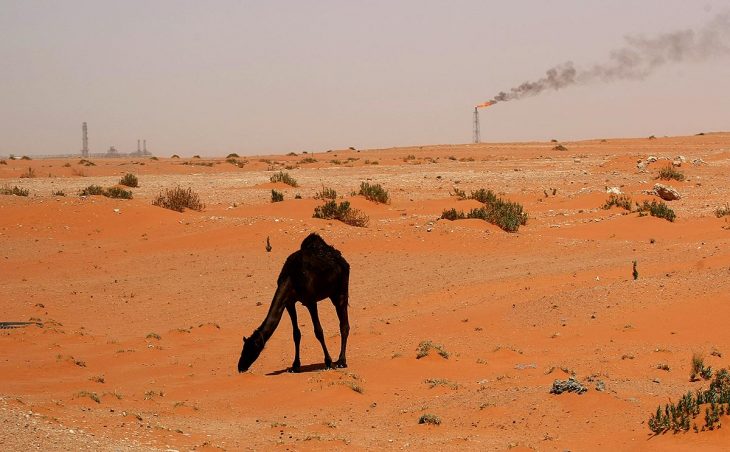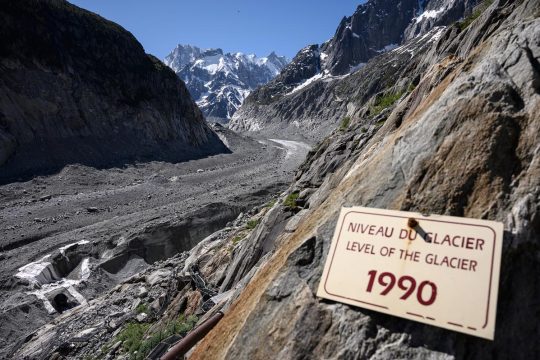The COP27 climate conference opens in Egypt on November 6. Since the first Conference of the Parties ("COP") to the United Nations Framework Convention on Climate Change in 1994, governments have been negotiating around two key ideas. First, that the richest states - initially the OECD member states which are historically the biggest polluters -- must reduce their greenhouse gas (GHG) emissions more and faster than others. Second, that the OECD countries must pay so that the poorest countries, which are the first victims of climate change effects even though they are responsible for only a small part of the GHG emissions, can adapt to it - i.e. protect their population and build a non-polluting system of production.
These two ideas constitute what the international movement of climate NGOs has called "climate justice", in other words an obligation of solidarity between the States of the North and those of the South on the climate. After two decades of tough intergovernmental discussions, these ideas were translated in 2015 into the Paris Agreement (COP21), which recognizes that the States have "common but differentiated responsibilities" in the global objectives of GHG reduction, aimed at a maximum increase in average temperature of 1.5°C compared to the beginning of the industrial era; and, as early as 2009-2010 (COP15 in Copenhagen and COP16 in Cancún), the creation of the Green Climate Fund, which organizes transfers of funds from the richest countries to those countries most vulnerable to climate change
The four biggest polluters
Unfortunately, it took less than two years for this logic to be widely questioned. In July 2017, the US-based scientific organization Climate Accountability Institute and the British NGO Carbon Disclosure Project published a report questioning the responsibilities of fossil fuel companies - rather than governments - in climate change, both in terms of direct GHG emissions and indirect or induced emissions. The most striking findings of this "Carbon Majors" report are: that more than half of historical GHG emissions occurred between 1988 and 2015; 100 fossil fuel companies (coal, oil, gas) are responsible for 71% of global emissions since 1988, with the 25 most polluting companies responsible for 51% of emissions; and among the ten most polluting companies since 1988, only three are from an OECD member country, the first four places being occupied by Saudi oil company Saudi Aramco, Chinese coal company Shenhua (which became China Energy in August 2017), Russian gas company Gazprom, and the National Iranian Oil Company.
On reading this report, two things stand out: the responsibility of companies in climate change seems to take precedence over that of States - an observation that must be strongly qualified by the fact that 59% of companies in the Carbon Majors ranking are majority-owned by States; and non-OECD States (mainly China, Saudi Arabia and Russia, but also including Iran, India, Venezuela, the Gulf States and Algeria) are up there with the OECD States in their historical responsibility for climate change.
"Climate Criminals"
In his book “Criminels climatiques” published in January 2022, French journalist Mickaël Correia details the strategies with which the top three companies in this ranking weave their international web through corrupt practices and partnerships with Western banking or energy firms, so as to continue increasing their eminently polluting production despite the objectives of the Paris Agreement. He reminds us of the major humanitarian need to respect this agreement, at a time when several recent scientific studies - Lancet 2021, Nature Climate Change 2021 - count in hundreds of thousands the deaths each year due to the global increase in temperatures and when, according to the International Displacement Monitoring Centre, forced migrations of populations for climatic or environmental reasons amount to more than 25 million people per year. And to quote the historian of science Christophe Bonneuil, director of research at the CNRS, "any step that would delay the freezing of a part of the fossil reserves, and any emission of GHGs that would lead us to exceed the threshold of +2°C must henceforth be taken for what they are: acts that threaten the safety of our planet, heavy with victims and human suffering (...), [that] deserve the qualification as 'crimes'".
Climate justice : Some success, but in the West
The international climate movement quickly seized on the new findings of the Carbon Majors report. After taking States to court to force them to reduce their GHG emissions - with resounding victories in the Netherlands (Dutch Supreme Court decision in 2019) and in France (Paris Administrative Court decision in 2021) -, NGOs have filed lawsuits against several large fossil fuel companies. They have done so by using the same legal argument against these multinationals that worked against the States: denouncing both the failure of these companies to comply with commonly accepted international standards for the reduction of GHG emissions, and the serious humanitarian consequences of their pollution.
One suit has already been successful: the one by Dutch NGO Milieudefensie against Anglo-Dutch oil major Shell, ordered in May 2021 to reduce its GHG emissions 45% by 2030 compared with their level in 2019 (Shell appealed this judgment in March 2022). Another lawsuit, brought by the French NGO Notre affaire à tous and several local authorities against the French oil company Total, is all the more remarkable in that the cities of Paris and New York recently joined the plaintiffs. But these proceedings remain confined for now to Western countries, where fossil fuel companies are owned by private shareholders, where the rule of law functions better, and where immense environmental pollution is not systematically accompanied by serious human rights violations.
Targeting corporations
As COP27 opens in Sharm el-Sheikh, what is left of the concept of "climate justice" that had previously served as a spur to international climate negotiations? The idea has become clearer, pointing more clearly to those directly responsible for emissions. “Globally, 90 companies alone are responsible for two-thirds of greenhouse gas emissions,” says NGO Greenpeace France on its website page dedicated to climate justice. “The climate change caused by these emissions is tragically affecting some of the world's populations. It is therefore essential that these companies change their business model and be brought to justice."
However, intergovernmental negotiations on climate, structured around a North-South axis, do not seem to be able to respond to this issue. This is one of the reasons why the climate negotiations have stalled since the Paris Agreement. In its annual assessment of climate action, published on October 27, the United Nations Environment Programme (UNEP) emphasizes that the current policies of States are leading straight to a catastrophic warming of 2.5°C by the end of the century. UN Secretary General Antonio Guterres reacted by stressing that while developed countries must "lead the way" in reducing GHG emissions, "emerging economies must also do more". In emerging economies, however, it is unlikely there are courts that will force them to do so.








